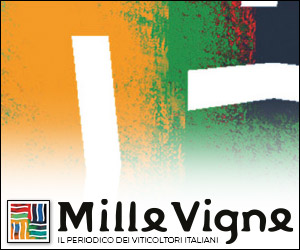The team of Italian Masters of Wines is expanding, Pietro Russo, a Sicilian oenologist, has in fact successfully discussed the thesis foreseen at the conclusion of the third phase of the path foreseen by the Institute of Master of Wine for obtaining the prestigious title.
A thesis of close enological relevance which concerned the comparative analysis of the different tartaric stabilization techniques, including the impact of the new EU rules on labelling, for the Sicilian wines Grillo and Nero d’Avola. Wines of which Russo has great knowledge, having been Donnafugata’s winemaker since 2010.
“Donnafugata is an incredible scenario, where every day we are faced with ever-changing stimuli and needs and where one harvest is worth four. I am happy to have contributed to the qualitative consolidation of the company’s wines and to have actively participated in the birth and stylistic development of the wines of the Etna and Vittoria estates. The Rallo family, to whom I am grateful, gave me the opportunity to continue my studies and work daily on ambitious and innovative projects. I believe I have a strong sensitivity in perceiving the qualitative potential of a territory and in adopting a coherent and respectful technical approach in order to reveal its peculiar characteristics.”
Donnafugata was the culmination of a professional journey that began with a three-year degree in Oenology and Viticulture in Conegliano and continued in Asti for a specialist degree. From there the stays abroad with studies in Montepellier and Bordeaux and work experiences in Languedoc, Sicily, Spain, Bordeaux, Tuscany and New Zealand.
The Institute of Masters of Wine is an organization founded in 1953, whose members are the Masters of Wine. The mission is to promote excellence, sharing and knowledge between different sectors of the global wine community. Masters of Wine demonstrate their knowledge of all aspects of wine by passing the final exam, recognized globally for its rigor and demanding standards. The test involves a series of theoretical documents and blind tastings, as well as an individual research project that can contribute to understanding the world of wine.
The seriousness, rigor, and extensive structure of the study plan, which requires passing three distinct levels, have made it the highest ambition for wine professionals from all over the world.
“The course of study enriched me not only from the point of view of the knowledge acquired and the network, but also gave me the opportunity to learn a rigorous and effective working method, fundamental for summarizing my skills and for understanding and communicating a wine with the aim of positioning it in a qualitative and commercial context. It was a very difficult course of study and at the same time full of satisfactions: I like to think that this is just the starting point for numerous other professional challenges”
With Russo, the Italian Master of Wine team is not only expanding in numerical terms, but also in terms of geographical and skills spectrum. In fact, before him, Gabriele Gorelli, a Tuscan trained as a sommelier and taster, and Andrea Lonardi, an agronomist by training and COO of the Bertani winery in Verona, obtained the diploma.
And talking about a team is not a figure of speech, given that together they wrote the Italian chapter of the Sotheby’s Wine Encyclopedia, recognized as the world bible of wine.
We took the opportunity of the proclamation to ask the new Master of Wine the two questions that we will ask opinion leaders and practitioners at next ProWein and Vinitaly to try to outline the future of the sector.
What is the biggest threat to wine today?
“Aside from the decline in consumption and the difficult period, what seems most dangerous to me are the continuous and unjustified attacks on the wine system by health lobbies pushing for zero consumption, claiming the negative aspects of alcohol. Wine is culture, territory, art, which is why we must react to such provocations decisively and by working together with other producing countries, not just as a wine sector. We must clearly work on the concept of moderate consumption and the Mediterranean diet, the key values of our food culture.”
…and the biggest opportunity?
“There are many opportunities in this difficult historical moment, but only if you have the desire to accept changes. I think of wine tourism as an incredible resource to excite consumers and create brand ambassadors, the driving force of Italian wine in the world. Furthermore, even if I don’t believe in the alcohol-free wine alternative to the decline in consumption, these drinks could partially absorb the excess volumes of our production sector. However, care must be taken to return the right value and income to all operators in the sector, including winemakers, otherwise the system will not be sustainable in the long term.”
Our congratulations to Pietro Russo and… ad maiora!



